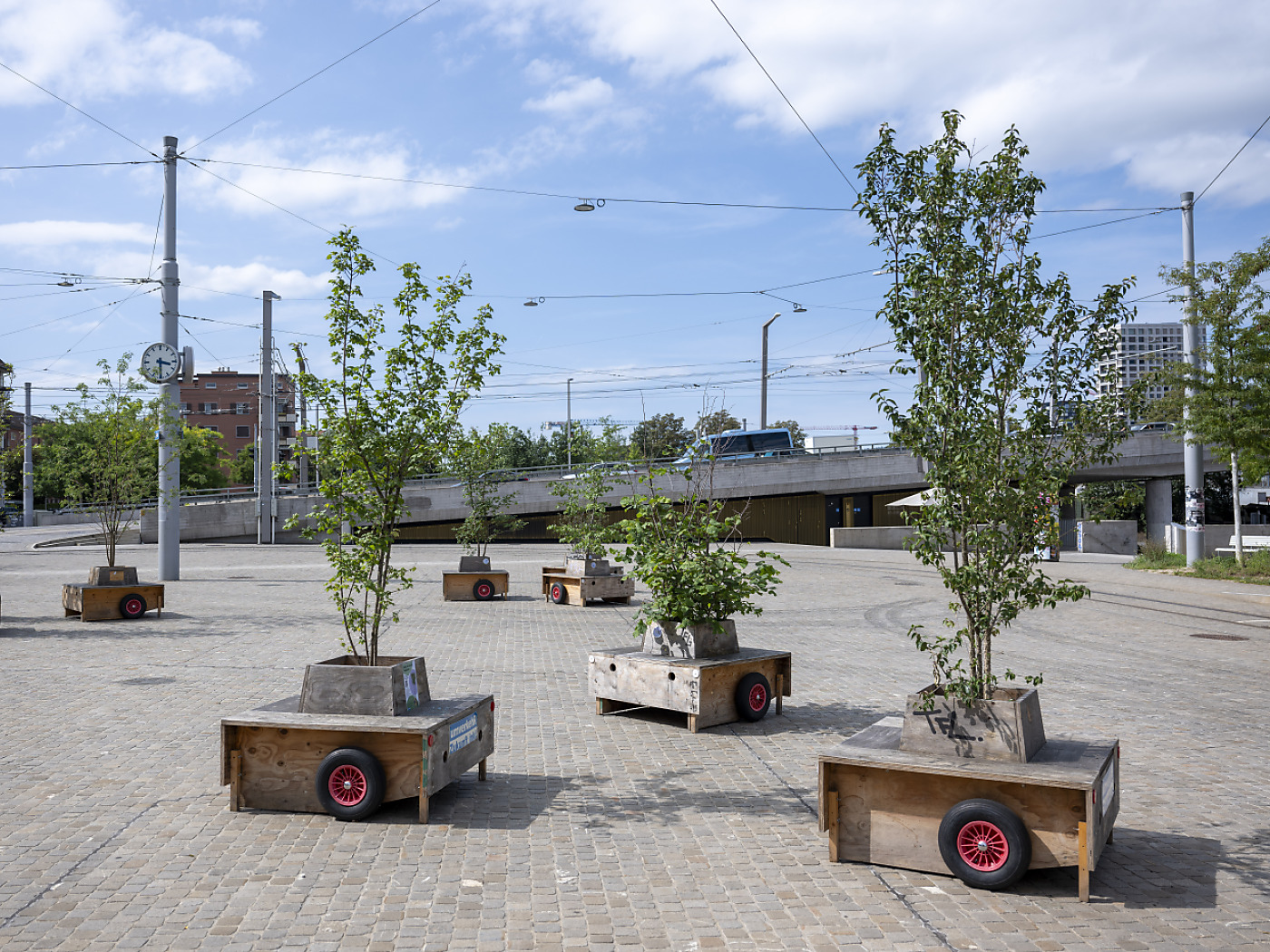
Swiss cities are home to 1,300 different tree species

More than 1,300 tree species live in Swiss cities, most of them non-native. Forests, on the other hand, contain just 76 species, according to a study published on Monday by the Swiss Federal Institute for Forest, Snow and Landscape Research (WSL).
However, this diversity of trees has a negative side: it makes cities a “gateway for invasive forest pests”, according to the study. Proportionally, introduced pests find more hosts in urban areas than in forests.
+ Get the most important news from Switzerland in your inbox
Consequently, urban environments “are an ideal location for observational measures that would enable early identification and control of invasive species,” stress the authors of the study, published in the journal Landscape and Urban Planning.
To this end, they consulted tree cadasters throughout Switzerland. A tree cadaster is a register in which municipalities list individual trees. In all, over 500,000 urban trees were listed.
Urban biodiversity
This surprising urban diversity needs to be put into perspective, however, as most of the time, only a few species dominate, such as maples and lime trees. The phenomenon is even more marked in natural forests: in forests located less than 10 km from cities, spruces and beeches predominate.
“This makes our comparison between urban trees and those in surrounding forests interesting. After all, cities are generally considered poor in diversity, while forests are perceived as rich in diversity. In reality, the opposite is true,” explains forest protection expert Benno Augustin, quoted in the press release.
Adapted from French by DeepL/ac
This news story has been written and carefully fact-checked by an external editorial team. At SWI swissinfo.ch we select the most relevant news for an international audience and use automatic translation tools such as DeepL to translate it into English. Providing you with automatically translated news gives us the time to write more in-depth articles.
If you want to know more about how we work, have a look here, if you want to learn more about how we use technology, click here, and if you have feedback on this news story please write to english@swissinfo.ch.

In compliance with the JTI standards
More: SWI swissinfo.ch certified by the Journalism Trust Initiative















![The four-metre-long painting "Sonntag der Bergbauern" [Sunday of the Mountain Farmers, 1923-24/26] had to be removed by a crane from the German Chancellery in Berlin for the exhibition in Bern.](https://www.swissinfo.ch/content/wp-content/uploads/sites/13/2025/12/01_Pressebild_KirchnerxKirchner.jpg?ver=a45b19f3)













You can find an overview of ongoing debates with our journalists here . Please join us!
If you want to start a conversation about a topic raised in this article or want to report factual errors, email us at english@swissinfo.ch.